
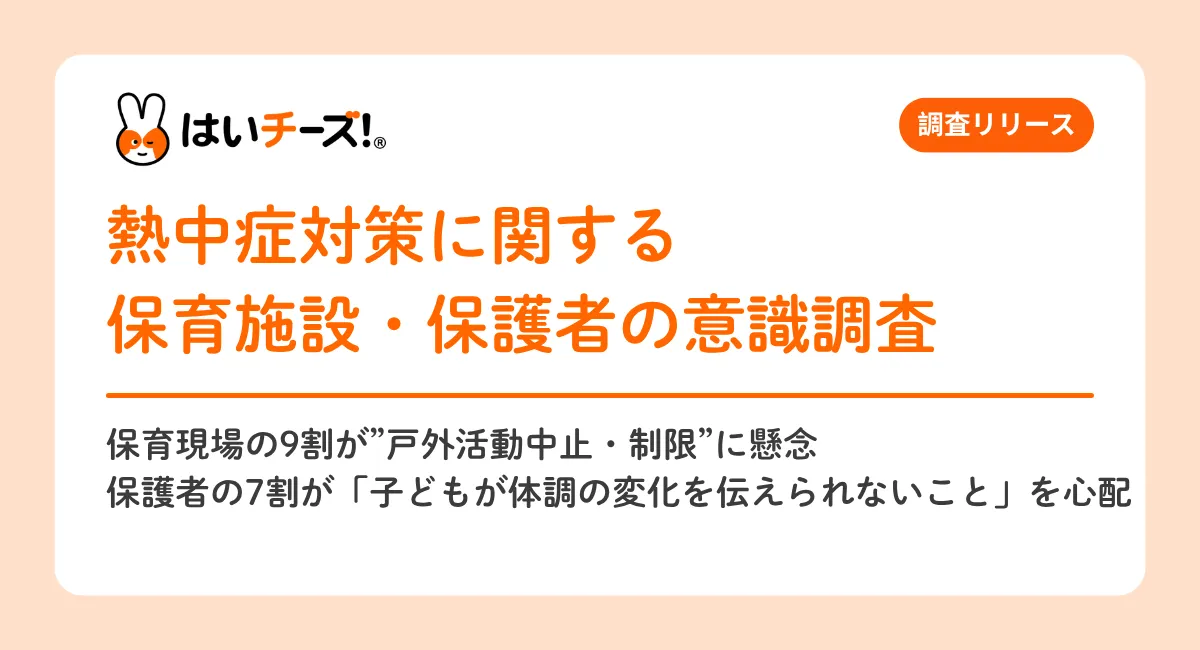
Awareness Survey on Heatstroke Prevention in Early Childhood Education Facilities
Understanding Recent Heatstroke Prevention Awareness in Japan
In light of the increasingly severe heat in recent years, Senco Inc., a Tokyo-based comprehensive childcare tech service provider, carried out a nationwide survey in Japan regarding awareness and precautions surrounding heatstroke in early childhood education facilities. The study targeted 352 kindergartens and daycare centers along with 891 parents of enrolled children. The survey's objective was to assess the current state and concerns of both childcare facilities and parents regarding heat-related risks, particularly in anticipation of the soaring temperatures projected for 2025.
Background of the Survey
Recent years have seen unprecedented summer temperatures, with similar trends expected to persist. As part of the government’s initiative starting June 1, 2025, the Ministry of Health, Labour and Welfare intends to implement stricter heatstroke prevention measures across workplaces, emphasizing the necessity for childcare facilities to reinforce their preparedness.
As a result, this survey delved into specific strategies employed by these facilities, as well as the perspectives held by parents regarding their children's health and safety in extreme heat conditions.
Key Findings
1. Concerns Among Childcare Facilities: A staggering 90% of childcare facilities expressed concern over the limitations imposed on outdoor activities due to extreme heat. Many reported scaling back on seasonal events as a result.
2. Parental Anxiety: Approximately 70% of parents voiced significant worries regarding their children’s inability to communicate any health changes effectively.
Detailed Insights from the Survey
1. Reassurance and Worries: Despite 67.9% of parents feeling assured by the measures taken by childcare facilities, a substantial 90% dealt with restrictions on outdoor activities, revealing an inherent dilemma within the system regarding children's development and safety during extreme temperatures.
- Facilities reported practices including regular hydration (99.4%), utilization of air conditioning and fans (97.7%), alongside more organized measures like the creation of heatstroke response manuals (56%) and coordination with medical institutions during emergencies (48%). Such initiatives highlight a comprehensive approach to not only daily operations but also preparations for emergency scenarios.
2. Heatstroke Risk Factors: Data collected indicated that last summer, 6.1% of parents reported their child experienced heatstroke, predominantly during outdoor play (53.7%) or sports (24.1%). Parents showed heightened concern about heat-related risks in various activities including outdoor school events (48.7%) and even during sleeping hours (43.2%). This indicates a heightened awareness of potential threats irrespective of context.
3. Communication Barriers: Parents raised concerns, with 71.3% expressing anxiety over their child's capability to relay any health changes. Only 51.4% emphasized the importance of sufficient sleep and just 29.3% prioritized balanced nutrition as preventive measures, indicating a potential gap in addressing overall child well-being proactively.
Recommendations for Improvement
As both childcare facilities and parents enhance their heatstroke prevention measures, notable challenges remain, such as the persistent constraints on outdoor activities and the communication gap regarding health changes experienced by children. Moving forward, it is essential for childcare providers to innovate while also strengthening support systems to alleviate parental concerns. Comprehensive information and resources need to be made available to both facilities and families to ensure that children's safety and healthy growth can coexist during harsh summer conditions.
Survey Methodology
The data was derived through a web-based questionnaire distributed between May 19 to June 7, 2025, across participating facilities and among registered parents of preschoolers in the 'Hai Cheese!' program, designed to help nurture children's happiness through a comprehensive childcare service model.
In conclusion, while strides have been made in heatstroke preventative measures within Japanese childcare facilities, continuous efforts must be directed towards fostering a supportive environment for both children and parents, ultimately ensuring a balanced approach that prioritizes child health and development amidst rising temperatures.
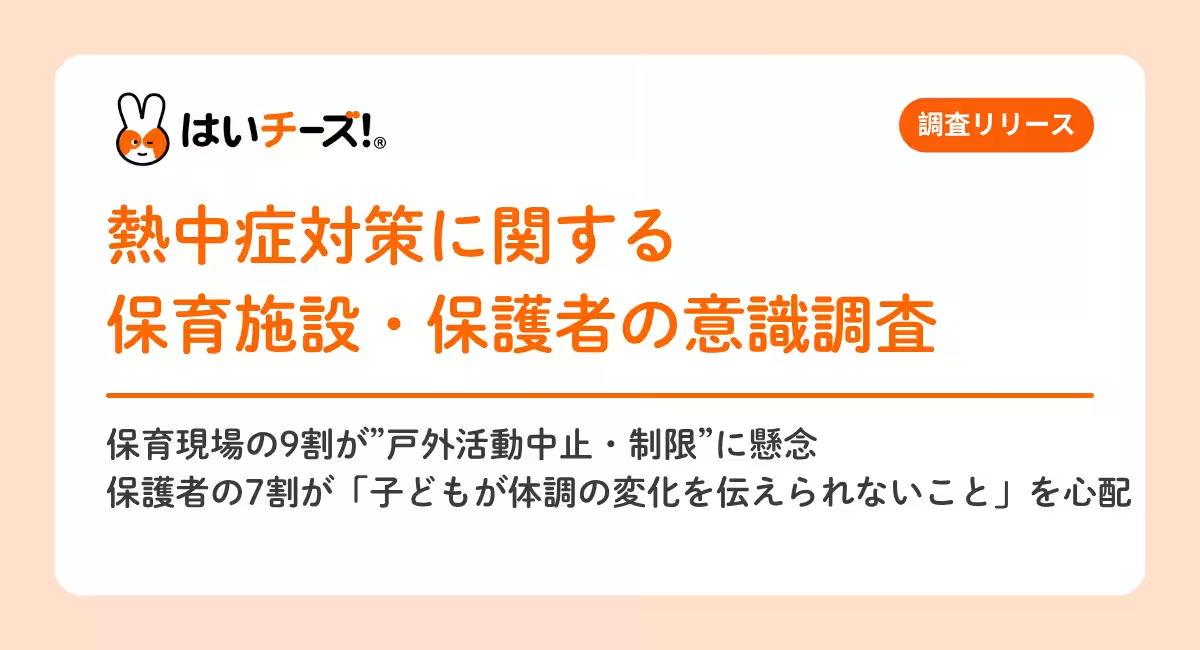
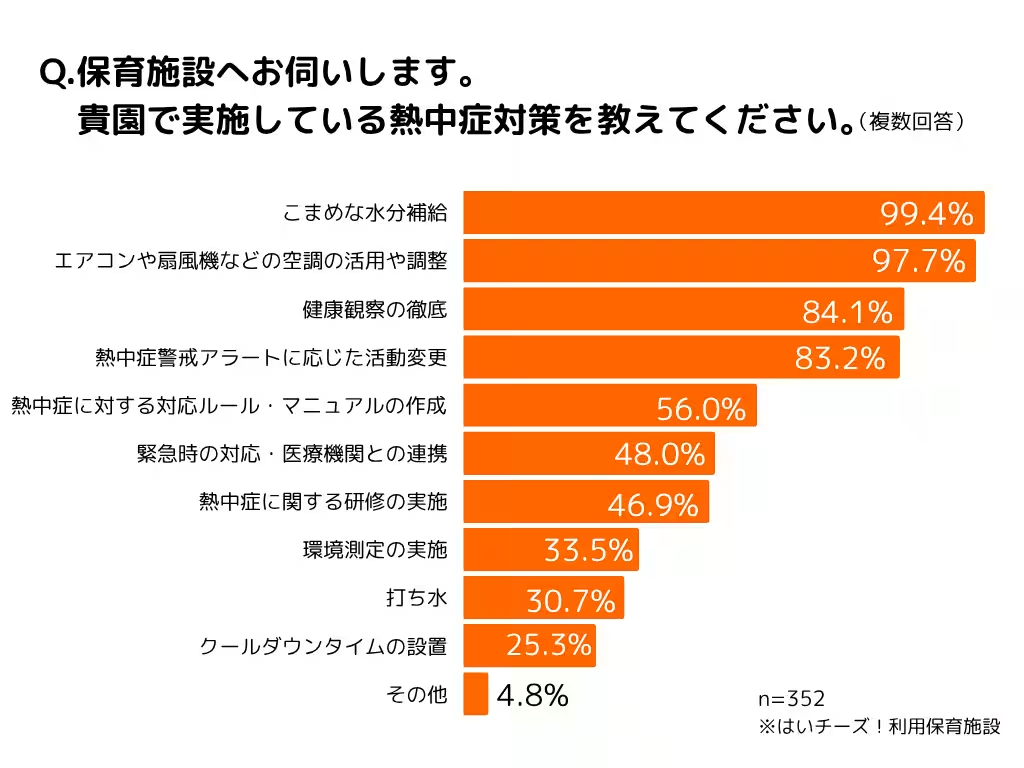
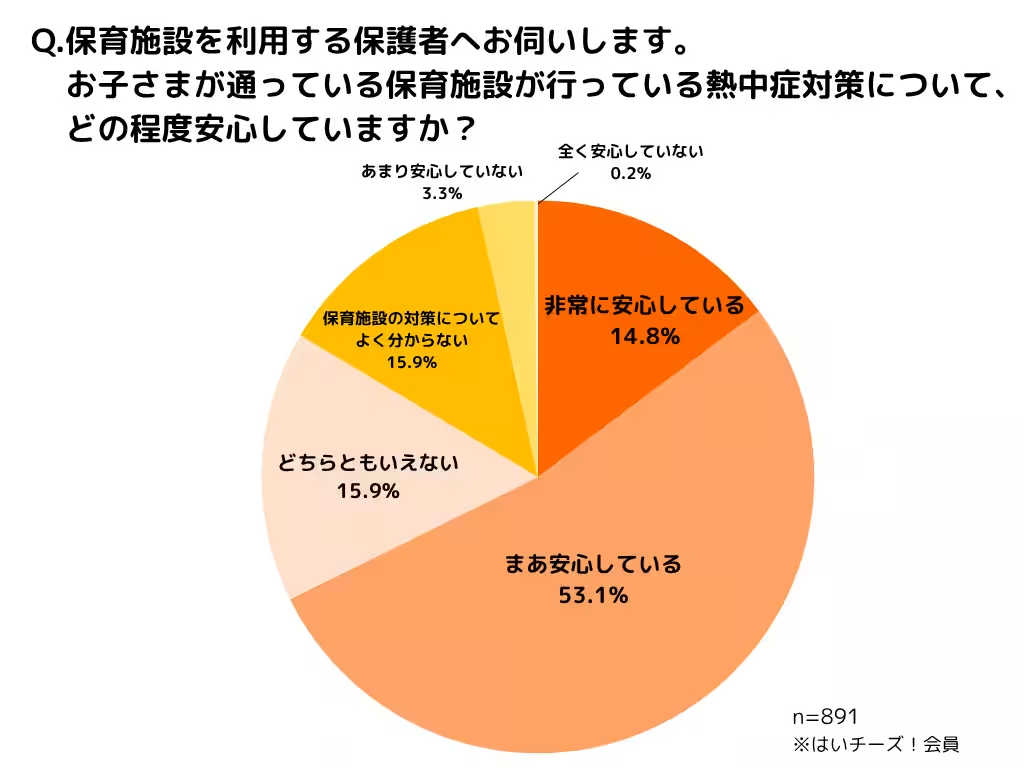
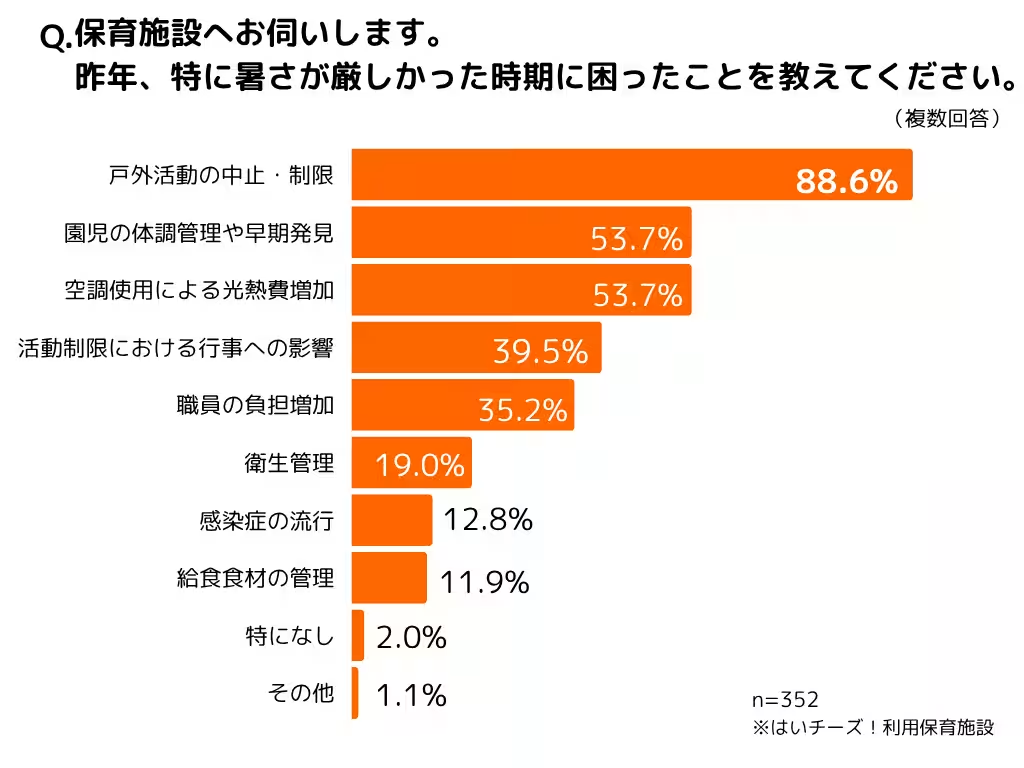
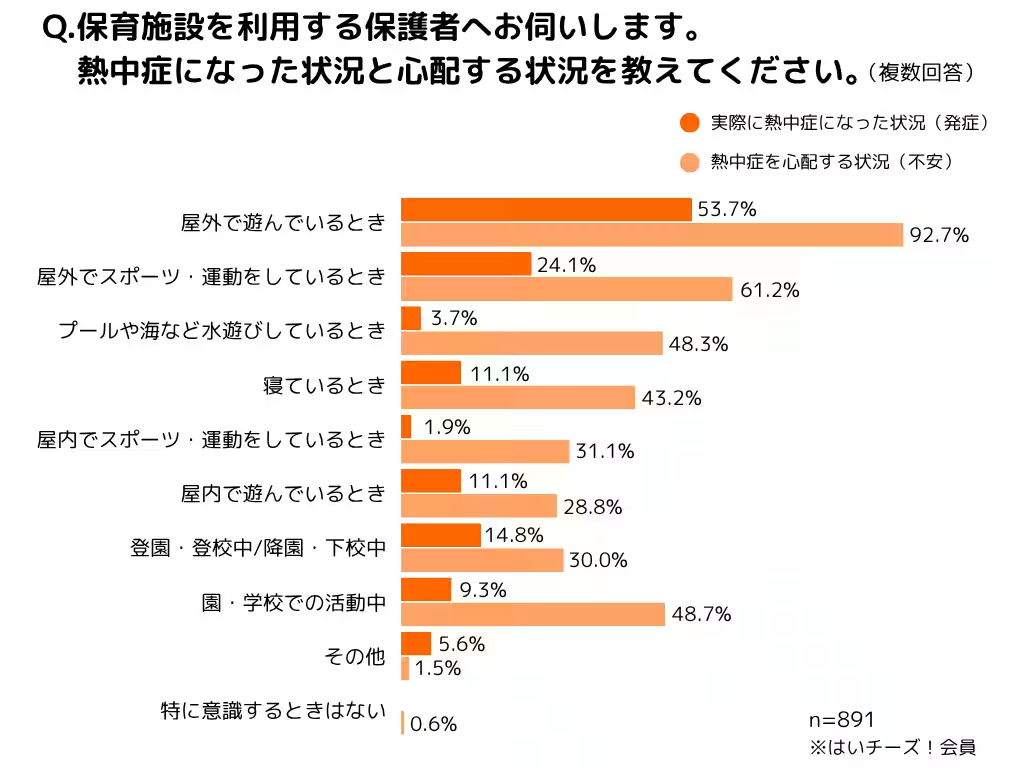
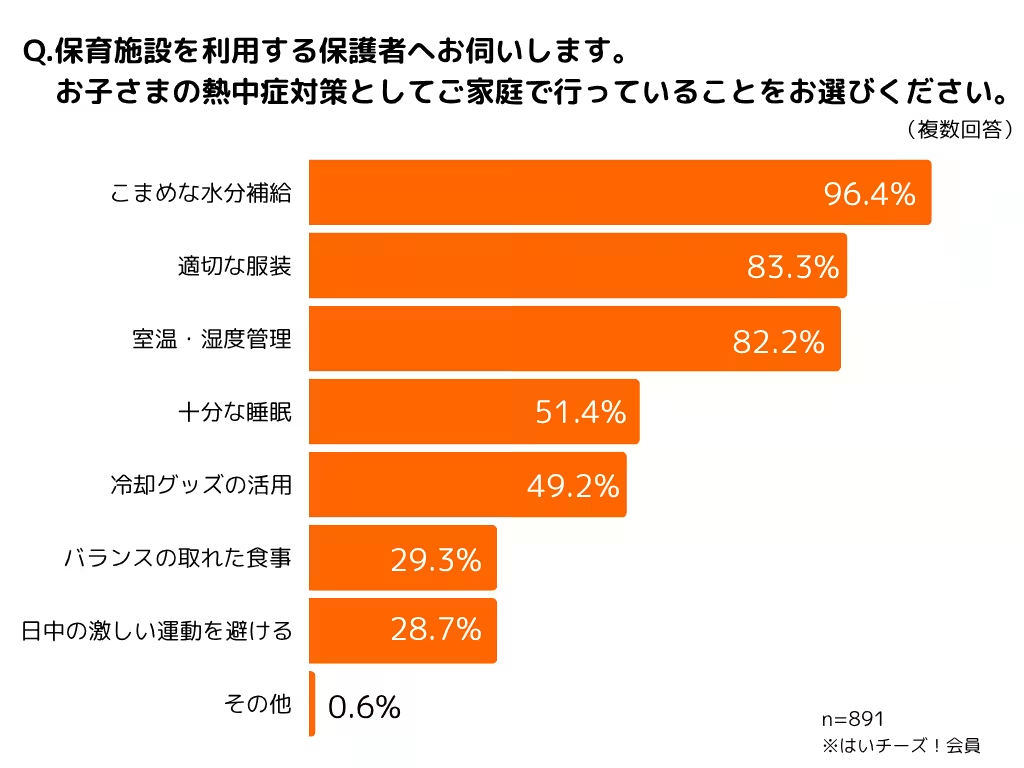
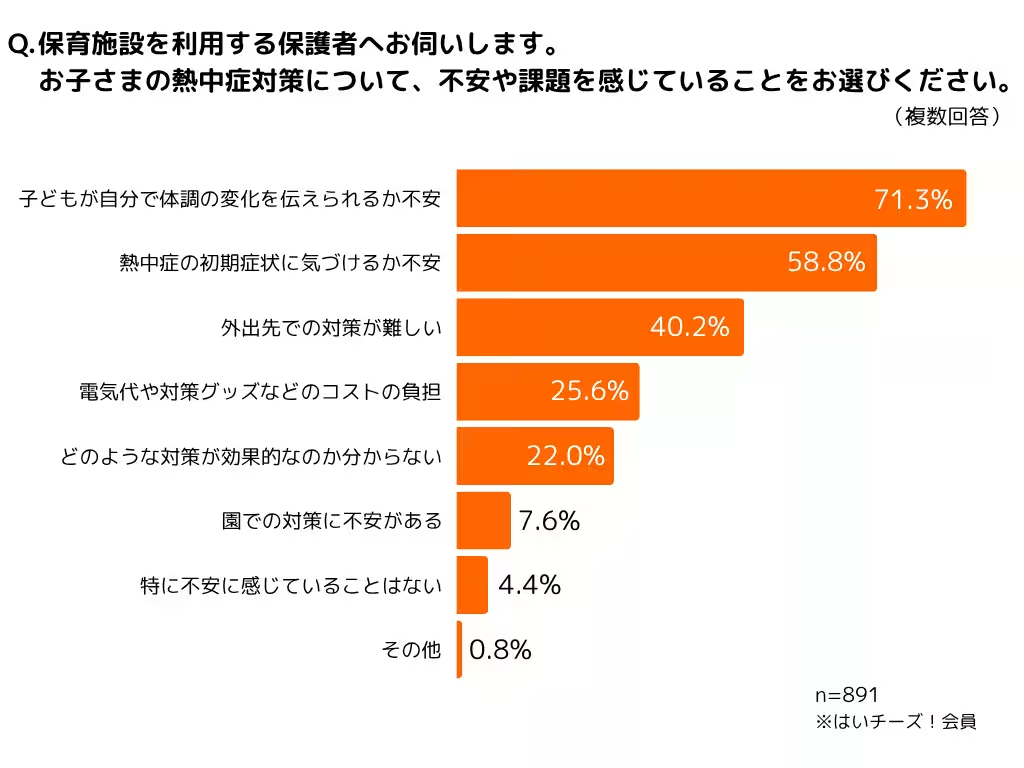


Topics Health)










【About Using Articles】
You can freely use the title and article content by linking to the page where the article is posted.
※ Images cannot be used.
【About Links】
Links are free to use.